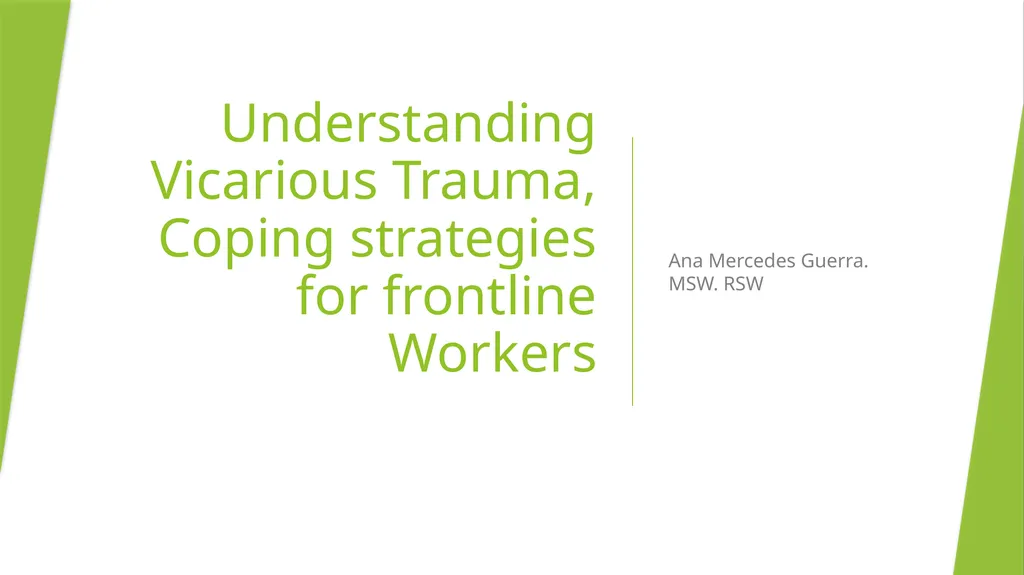
Author : alexa-scheidler | Published Date : 2025-08-16
Description: Understanding Vicarious Trauma, Coping strategies for frontline Workers Ana Mercedes Guerra. MSW. RSW Self awareness take care of your needs Self compassion This Photo by Unknown Author is licensed under CC BY-SA-NC Outline of todaysDownload Presentation The PPT/PDF document "" is the property of its rightful owner. Permission is granted to download and print the materials on this website for personal, non-commercial use only, and to display it on your personal computer provided you do not modify the materials and that you retain all copyright notices contained in the materials. By downloading content from our website, you accept the terms of this agreement.
Here is the link to download the presentation.
"Understanding Vicarious Trauma, Coping strategies"The content belongs to its owner. You may download and print it for personal use, without modification, and keep all copyright notices. By downloading, you agree to these terms.













